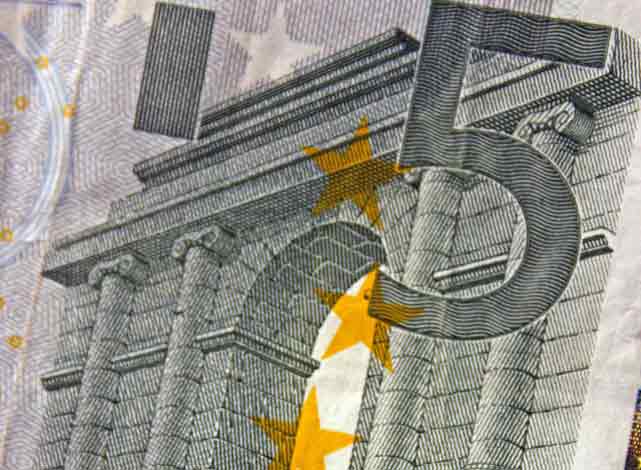Pound to Euro Week Ahead Forecast: French Relief Lifts EUR, GBP to Target 1.12
- Written by
David Woodsmith

The Pound to Euro exchange rate (GBP/EUR) held just above 1.15 as France’s political turbulence eased and investors weighed UK fiscal and monetary risks.
Foreign exchange analysts at ING expect gradual Sterling losses toward 1.1240 over the next year, while RBC sees the pair steady near 1.15.
ING forecasts that the Pound to Euro (GBP/EUR) exchange rate will weaken gradually to 1.1240 on a 12-month view.
RBC Capital Markets expects GBP/EUR can hold at 1.15 by the end of next year.
There was choppy trading during the week with GBP/EUR settling just above 1.15. The Euro gained relief after French Prime Minister Lecornu survived two confidence votes while UK data was mixed.
Global equities dipped amid US-China trade fears and a slide in US regional bank stocks.
RBC expects solid Euro demand if risk appetite dips; “For EUR crosses, most term currencies are underperforming, suggesting EUR is beginning to flex its defensive status.”
RBC also notes that high yields will provide Pound support at times while the economy has been resilient.
It added; “If that holds up in the medium-term, sterling is perhaps not as unattractive as many people think even if there are reasons to look for weakness in the short-term.”
According to ING; “Neither currency looks particularly attractive now, but the fiscal and monetary risks for sterling are probably greater.”
Bank of England policy will remain a key element with markets not expecting further cuts this year.
Standard Chartered sees scope for a medium-term policy shift; “We believe BoE could prioritize supporting economic growth over its long-term 2% inflation target. Following a mixed set of August job data, we anticipate the UK domestic job market to weaken further, as reduced labour demand is likely to slow employment growth, and increased labour supply could put downward pressure on wage growth. This could ease inflation risks, allowing the Bank of England (BoE) to ease monetary policy.”
Fiscal policy will also be a key element with Chancellor Reeves confirming that taxes will be increased. In November.
Berenberg remains cautious on UK fundamentals; “Tax hikes in the 26 November budget should bring about a belated fiscal squeeze. At the same time, a squeeze on real household spending power from elevated inflation, slowing pay growth and stagnant employment should curb household spending growth.
It added; “Once the BoE is content that these forces have squeezed excess inflation out of the system, we expect it to reduce its bank rate by 25bp in February and April 2026 to a terminal rate of 3.50%.
Rabobank is still uneasy over French political risks; “Macron and Lecornu have bought time, but France’s fiscal—and economic—challenges remain.
It added; “Whether he survives the looming budget debate is another matter, as his fate now rests with MPs willing to back the budget. If the government sticks to its pledge not to invoke Article 49.3, a majority must actually vote for it.”
BNY Mellon refuses to rule out further ECB rate cuts; “We continue to see the EUR struggling for the rest of the year and downside surprises in upcoming PMI prints could open the door to December being a live meeting.”
STORY LINK Pound to Euro Week Ahead Forecast: French Relief Lifts EUR, GBP to Target 1.12

The Pound to Euro exchange rate (GBP/EUR) held just above 1.15 as France’s political turbulence eased and investors weighed UK fiscal and monetary risks.
Foreign exchange analysts at ING expect gradual Sterling losses toward 1.1240 over the next year, while RBC sees the pair steady near 1.15.
GBP/EUR Forecasts: French relief
ING forecasts that the Pound to Euro (GBP/EUR) exchange rate will weaken gradually to 1.1240 on a 12-month view.
RBC Capital Markets expects GBP/EUR can hold at 1.15 by the end of next year.
There was choppy trading during the week with GBP/EUR settling just above 1.15. The Euro gained relief after French Prime Minister Lecornu survived two confidence votes while UK data was mixed.
Global equities dipped amid US-China trade fears and a slide in US regional bank stocks.
Save on Your GBP/EUR Transfer
Get better rates and lower fees on your next international money transfer. Compare TorFX with top UK banks in seconds and see how much you could save.
RBC also notes that high yields will provide Pound support at times while the economy has been resilient.
It added; “If that holds up in the medium-term, sterling is perhaps not as unattractive as many people think even if there are reasons to look for weakness in the short-term.”
According to ING; “Neither currency looks particularly attractive now, but the fiscal and monetary risks for sterling are probably greater.”
Bank of England policy will remain a key element with markets not expecting further cuts this year.
Standard Chartered sees scope for a medium-term policy shift; “We believe BoE could prioritize supporting economic growth over its long-term 2% inflation target. Following a mixed set of August job data, we anticipate the UK domestic job market to weaken further, as reduced labour demand is likely to slow employment growth, and increased labour supply could put downward pressure on wage growth. This could ease inflation risks, allowing the Bank of England (BoE) to ease monetary policy.”
Fiscal policy will also be a key element with Chancellor Reeves confirming that taxes will be increased. In November.
Berenberg remains cautious on UK fundamentals; “Tax hikes in the 26 November budget should bring about a belated fiscal squeeze. At the same time, a squeeze on real household spending power from elevated inflation, slowing pay growth and stagnant employment should curb household spending growth.
It added; “Once the BoE is content that these forces have squeezed excess inflation out of the system, we expect it to reduce its bank rate by 25bp in February and April 2026 to a terminal rate of 3.50%.
Rabobank is still uneasy over French political risks; “Macron and Lecornu have bought time, but France’s fiscal—and economic—challenges remain.
It added; “Whether he survives the looming budget debate is another matter, as his fate now rests with MPs willing to back the budget. If the government sticks to its pledge not to invoke Article 49.3, a majority must actually vote for it.”
BNY Mellon refuses to rule out further ECB rate cuts; “We continue to see the EUR struggling for the rest of the year and downside surprises in upcoming PMI prints could open the door to December being a live meeting.”
International Money Transfer? Ask our resident FX expert a money transfer question or try John's new, free, no-obligation personal service! ,where he helps every step of the way, ensuring you get the best exchange rates on your currency requirements.
TAGS: Pound Euro Forecasts
Comments are currrently disabled
Related Stories:
- Pound-to-Euro Forecast: GBP Supported Short-Term, Medium-Term Risks Remain - December 24, 2025
- British Pound to Euro Forecast: Can GBP/EUR Break to 8-Week Best? - December 23, 2025
- Pound to Euro Firms Following UK GDP Figures - December 22, 2025
- Pound-to-Euro Forecast: GBP Drifts as BoE Divisions Persist - December 22, 2025
- Pound-to-Euro Forecast: GBP Rebounds vs EUR After Hawkish BoE Cut - December 19, 2025
- Pound to Euro: GBP Rallies as BoE Pushes Back on Dovish Bets - December 18, 2025
- Pound-to-Euro Forecast: GBP Weaker Ahead of BoE, ECB - December 18, 2025
- Pound-to-Euro Slides as UK CPI Fuels BoE Cut Bets - December 17, 2025
- British Pound to Euro Forecast: GBP/EUR Lower as Sterling Relief Fades - December 17, 2025
Latest News:
- Euro to Dollar Forecast: EUR/USD Near 1.18 as Fed Outlook Dominates - December 27, 2025
- Pound Sterling to Dollar Forecast: Fed Minutes Next Test for USD Direction - December 27, 2025
- Pound-to-Euro Forecast: GBP Supported Short-Term, Medium-Term Risks Remain - December 24, 2025
- British Pound to Dollar Forecast: GBP Jumps to 11-Week Best on USD Retreat - December 24, 2025
- Pound Sterling to Dollar Forecast: Festive Mood Lifts GBP/USD Toward 2026 - December 23, 2025
- Pound-to-Dollar Forecast: GBP/USD Higher as Rate Outlooks Diverge - December 23, 2025
- British Pound to Euro Forecast: Can GBP/EUR Break to 8-Week Best? - December 23, 2025
- Pound to Euro Firms Following UK GDP Figures - December 22, 2025
- Euro to Dollar Forecast: Near-Term EUR/USD Driven by Fed Outlook - December 22, 2025
- Pound-to-Euro Forecast: GBP Drifts as BoE Divisions Persist - December 22, 2025









